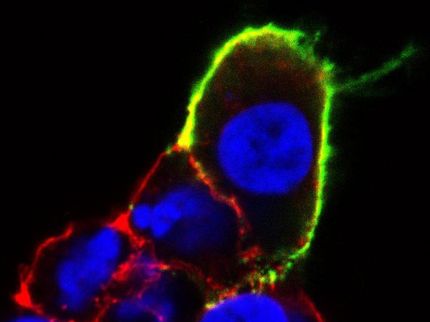Epigenomics AG: New Clinical Data for Septin9 Colorectal Cancer Blood Test
Independent validation of laboratory test used in PRESEPT Study shows that the test finds 86% of the cancers
Epigenomics AG announced that new data obtained in a clinical study with the Company's proprietary Septin9 biomarker for the blood-based detection of colorectal cancer were presented at the 18th United European gastroenterology Week (UEGW) in Barcelona, Spain. The new data were presented by Dr. Juergen Beck, MD, who recently joined Epigenomics as Senior Vice President Medical Affairs, and validate findings in the successfully completed prospective PRESEPT Study, also presented at the conference.
In the PRESEPT Study, Epigenomics' proprietary Septin9 blood test detected 67% of the colorectal cancer cases at a specificity of 88% when compared to colonoscopy, the gold standard in colorectal cancer detection. PRESEPT is a prospective evaluation of the Septin9 biomarker in a study cohort representative of the screening population for colorectal cancer. Almost 8,000 individuals undergoing colonoscopy for routine colorectal cancer screening were enrolled at 32 clinical sites in the US and Germany over a period of about 18 months in this benchmark study. The study was sponsored by Epigenomics, the discoverer of the Septin9 biomarker. It is the largest privately sponsored study in colorectal cancer screening ever conducted.
Dr. Beck further presented data obtained in a smaller case-control study following the large PRESEPT Screening Study to independently validate the diagnostics assay that had been used in the PRESEPT Study. Investigators in an independent third-party laboratory analyzed cancer cases and colonoscopy-negative controls following the PRESEPT testing protocol. Within this study, the data of which have not been presented before, a sensitivity of 86% and a specificity of 93% were observed.
Most read news
Topics
Organizations
Other news from the department research and development

Get the life science industry in your inbox
By submitting this form you agree that LUMITOS AG will send you the newsletter(s) selected above by email. Your data will not be passed on to third parties. Your data will be stored and processed in accordance with our data protection regulations. LUMITOS may contact you by email for the purpose of advertising or market and opinion surveys. You can revoke your consent at any time without giving reasons to LUMITOS AG, Ernst-Augustin-Str. 2, 12489 Berlin, Germany or by e-mail at revoke@lumitos.com with effect for the future. In addition, each email contains a link to unsubscribe from the corresponding newsletter.
Most read news
More news from our other portals
See the theme worlds for related content
Last viewed contents
Felicitex Therapeutics and Selvita Initiate Strategic Collaboration to Target Cancer Quiescence

Faecal Pollution: DNA Uncovers Culprit - CSI and forensics can be used to uncover not only serial killers but also the cause of water pollution
Chinese_Mental_Health_Association
Catalent Invests $7.3 Million in Italy - Expands Softgel Encapsulation and Packaging Capabilities in Support of Consumer Health

Bioluminescence - the natural glow - How glowing molecules can also be used in industry
2006 Life Science Industry Awards Finalists
Category:National_Institutes_of_Health_images
Energy sensor as potential target for cancer drugs identified
VaxGen Raises USD 79M Through Sale of Interest in Overseas Biopharmaceutical Manufacturing Facility






















































